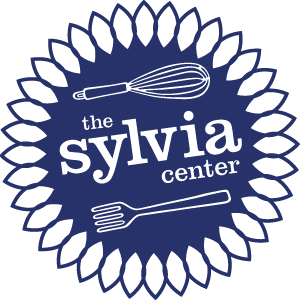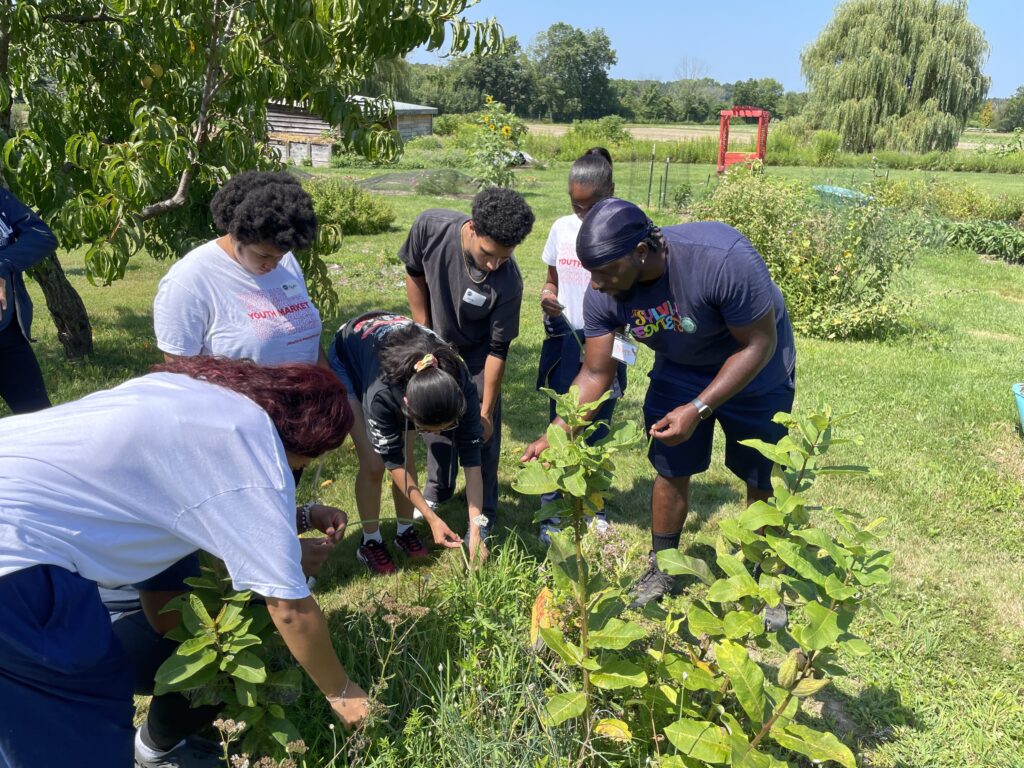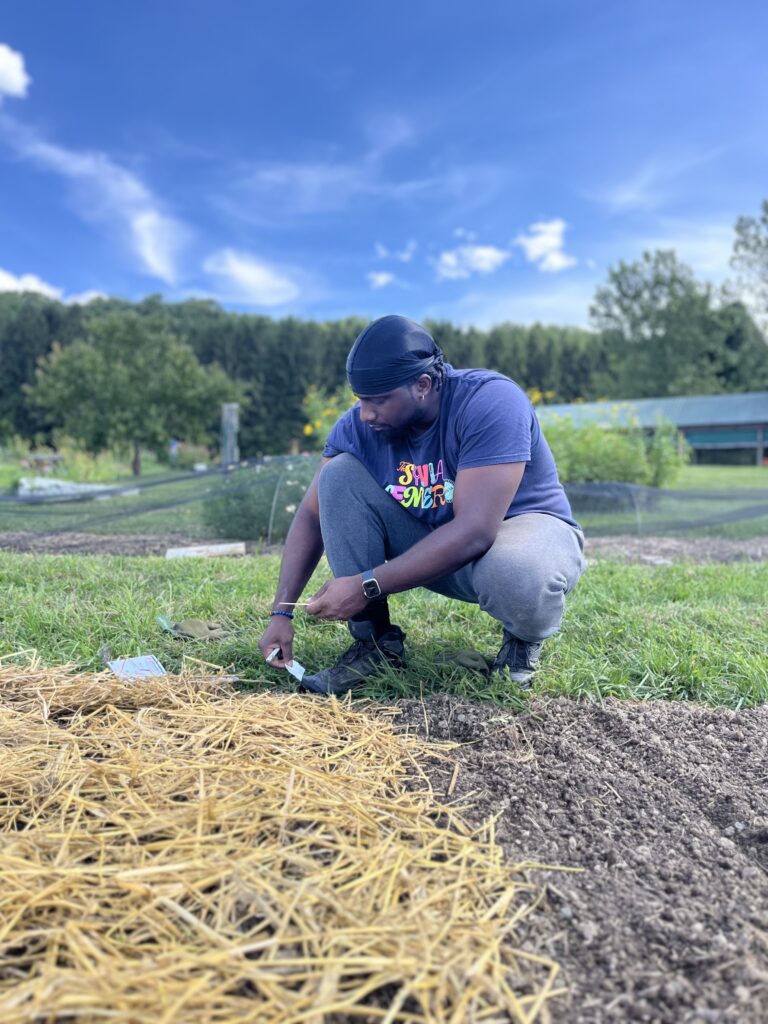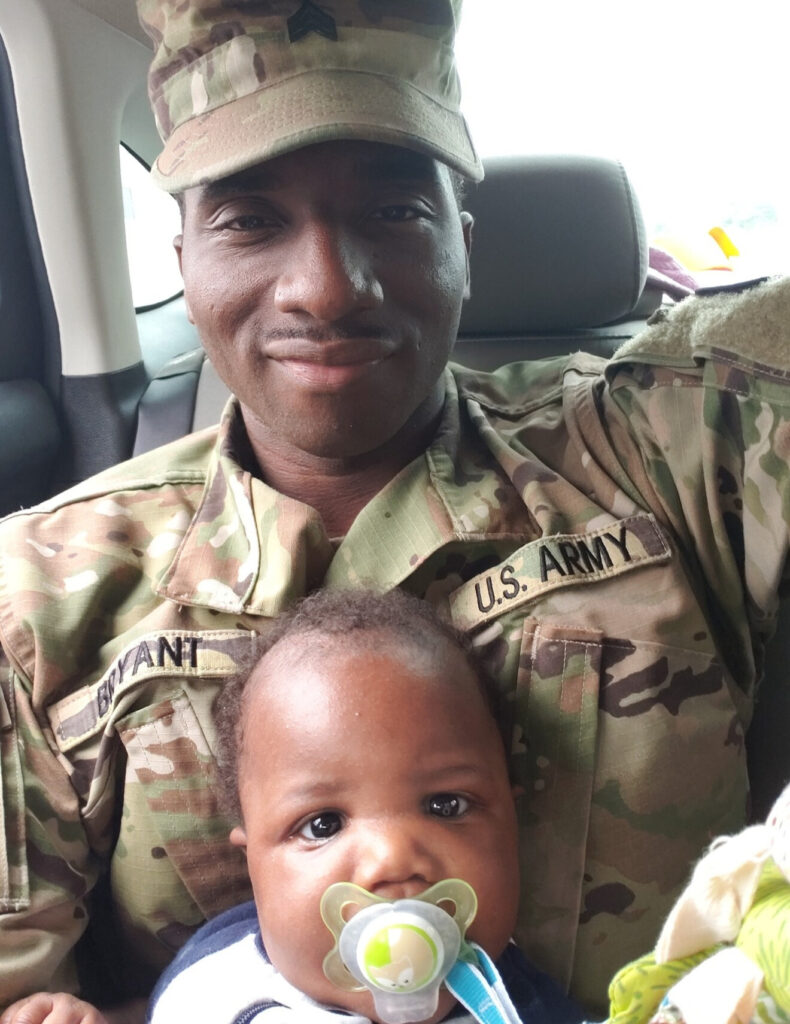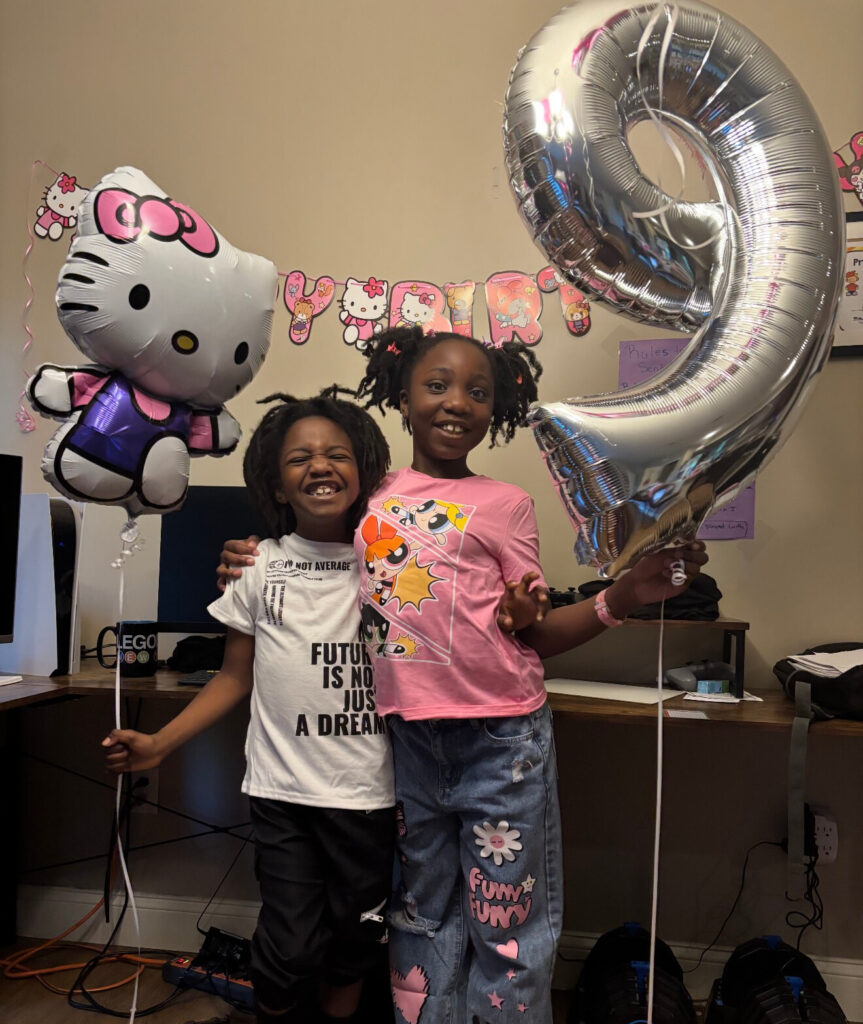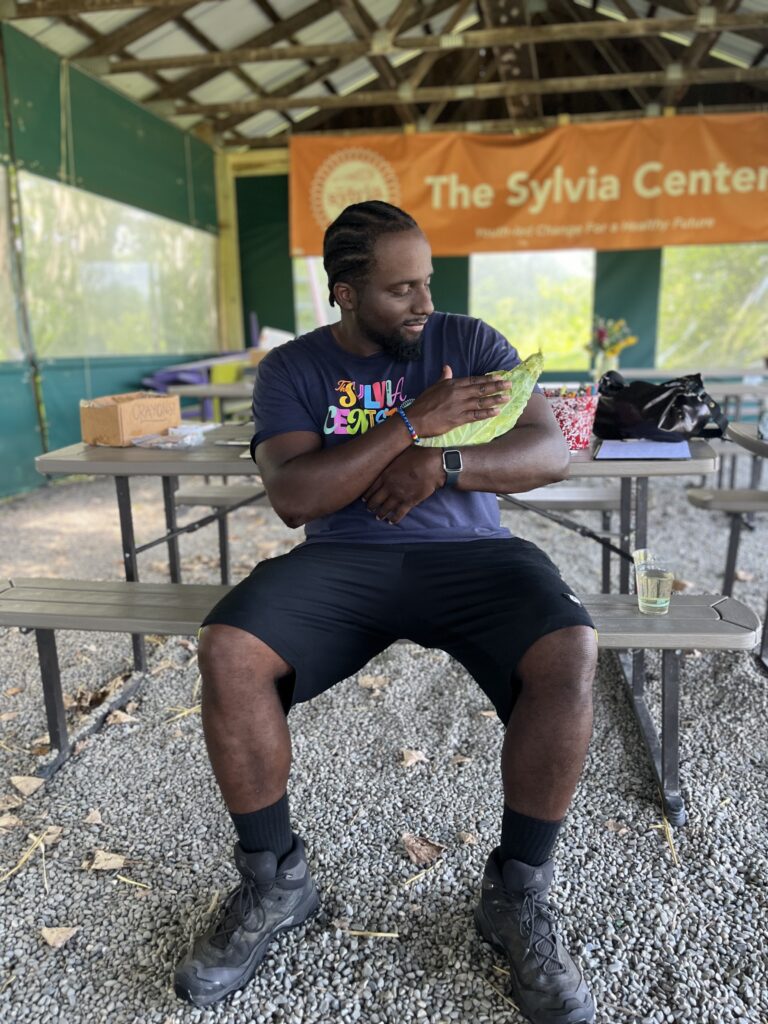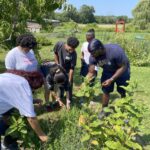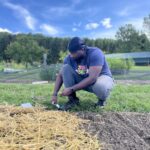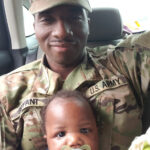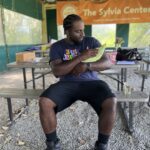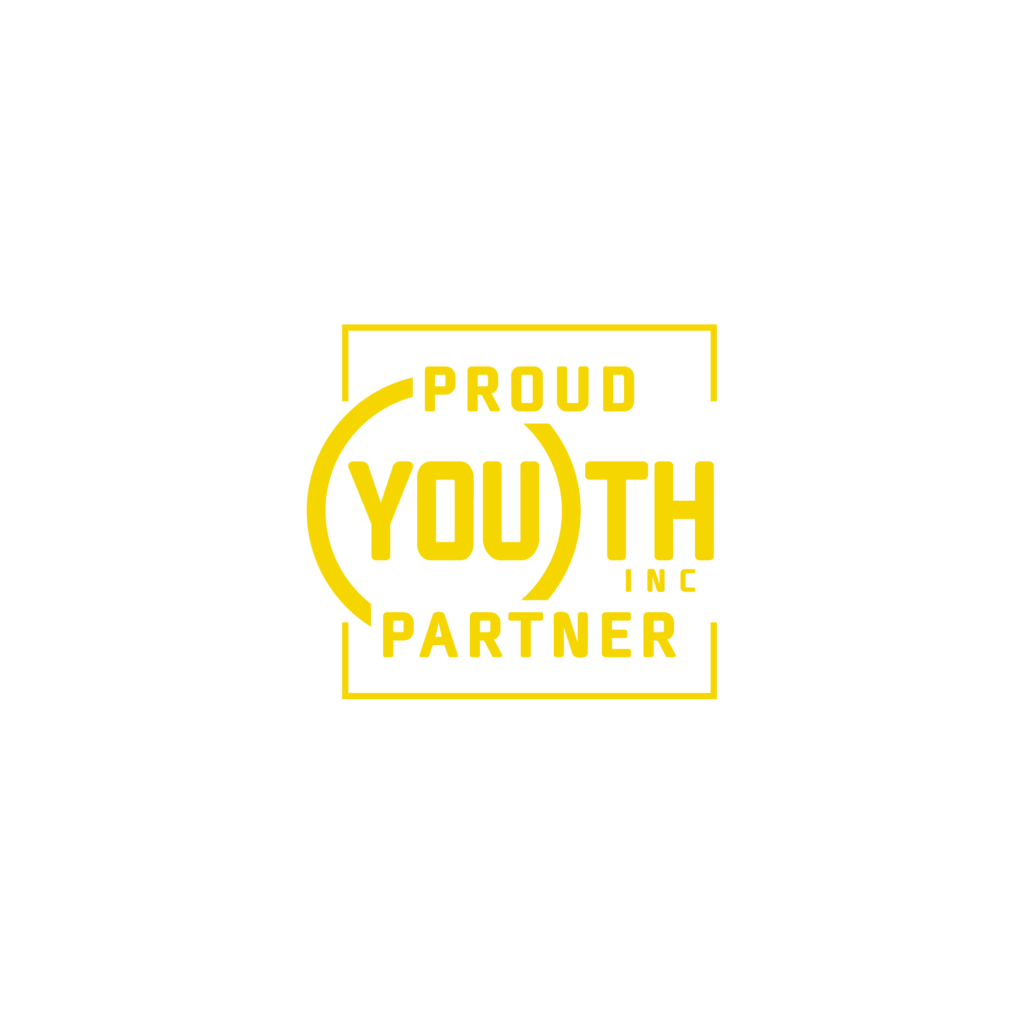I didn’t grow up thinking food could change your life. We lived in Bed-Stuy, Brooklyn, and we had corner stores, liquor stores, takeout, and the chicken spot. That was it. One stretch in my neighborhood had White Castle, Burger King, McDonald’s, Checkers, Sonic, all lined up within a mile. We thought it was the Holy Grail. No one ever told us food could be anything else. We didn’t know what we didn’t know.
Now here I am, a dad, a garden intern at The Sylvia Center, and a student at Russell Sage College, working toward becoming a registered dietitian. I’ve swapped combat boots for carrots. It’s funny to say it like that, but going back to school after 16 years in the military has been a real transformation–not just in my career, but in how I think, live, and eat.
Changing the Story Through Education
The Sylvia Center’s work is so important. We’re not just teaching kids how to cook—we’re teaching them why food matters. If someone had told me as a kid that eating beets would help my heart so I could run faster on the basketball court, I would’ve eaten beets. But no one connected the dots for me. It’s about making it relevant. Exposure is everything. That’s what The Sylvia Center does. We connect food to power, to health, to choices.
I started thinking about nutrition seriously when I was helping other soldiers get their health on track. They’d send the guys with issues to my squad because I was a personal trainer. I started noticing who was making progress and who wasn’t–and it came down to what was in their fridges. So I asked them to show me their food. The ones struggling? Fried, processed, greasy stuff. The ones succeeding? Greens. Color. Plants. It opened my eyes. It’s not just about what you eat–it’s about what kind of food you have access to, and whether you’ve ever been taught what to do with it.
A few years ago, I volunteered in Costa Rica and saw watermelons and pineapples growing wild, just sitting by the road. I was like, “you mean this food just grows, without doing anything to it?” Incredible! I’ve always thought about growing food, but gardening for myself felt impossible. Like some invisible wall between me and the land. And where I grew up? We didn’t have grass or trees.
Planting Seeds for the Future
Earlier this year, my professor at Sage invited TSC Learning Garden Manager Julie to speak in class. She showed up with these beautiful, multicolored carrots she’d grown, so I tasted one and was floored. I told myself “I need to work with this organization”. I emailed her a bunch, and now, about 6 months later, I’m in the Learning Garden every week, literally watching seeds turn into dinner. It still blows my mind.
The systems around us don’t make it easy. Stores in low-income neighborhoods stock the bare minimum–cereal, canned food, ultra-processed snacks. A few blocks into a wealthier zip code, it’s fresh fruit, gourmet veggies, organic everything. That’s not a coincidence. And that’s not an individual issue–it’s a community one. A systemic one. You can’t blame families for poor diets when the only store nearby sells soda and chips, while the organic produce is 10 blocks away. What we’re teaching at The Sylvia Center chips away at that. We’re showing kids another way.
I’ve seen it with my own kids. We don’t keep candy in the house, so my kids ask for apples and lettuce–they literally eat bags of the stuff–because that’s what they’re used to. When you expose children to real food early, it becomes their normal. At TSC, we show kids how food can heal, fuel, and empower. And I’m proud to be part of that. One day, I hope to start my own farm–maybe a little sister to the Learning Garden on Katchkie Farm. But right now? I’m learning. Growing. Back in school–in every sense.

